Raucous Roman spectacle Those About To Die asks: are you not entertained?
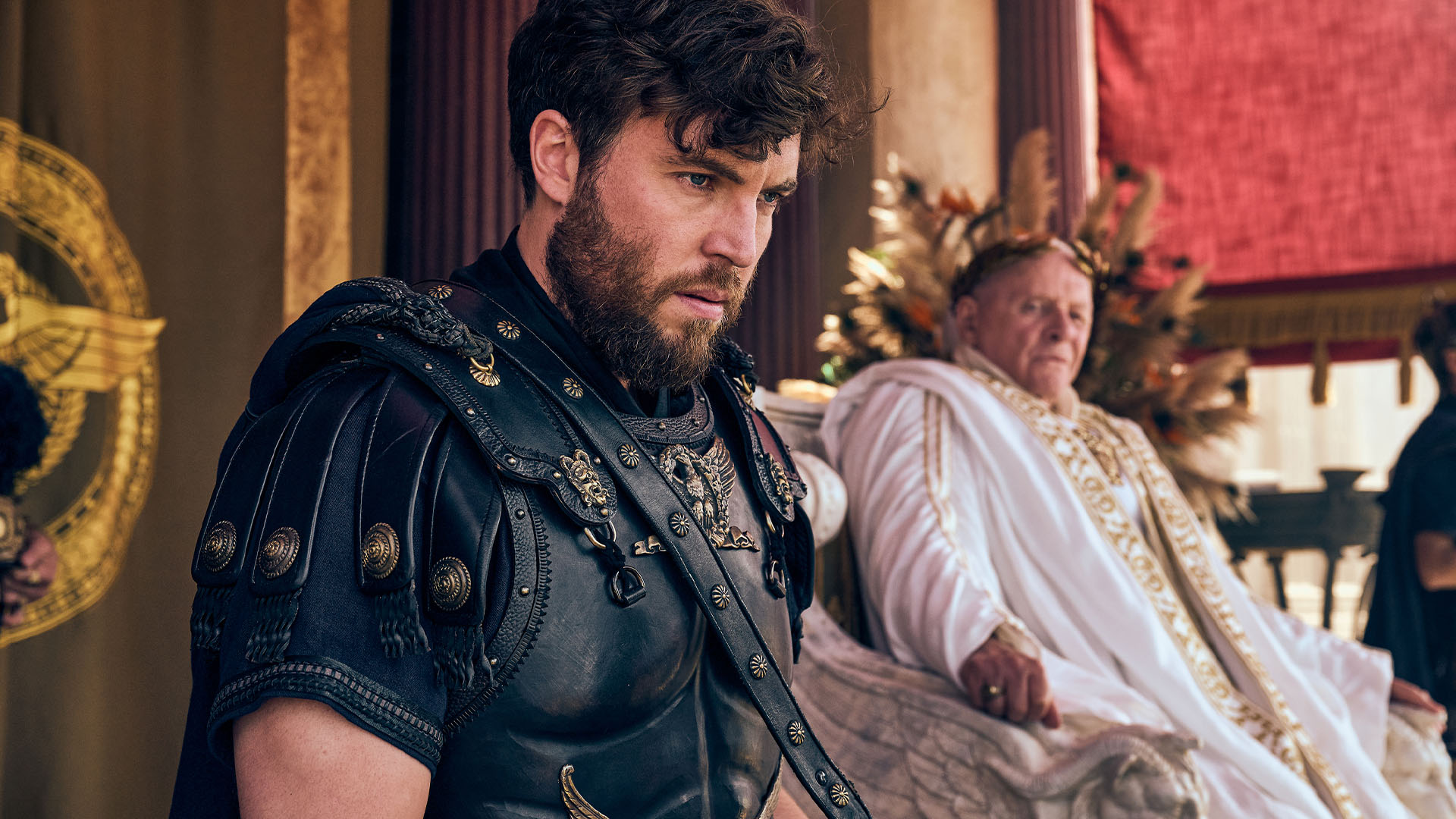

A sprawling and amoral world of gladiators, chariots, and battles for power comes to life in Those About to Die – streaming on Prime Video from July 19. It’s a bacchanal of bloodied togas and nasty, striving characters, says Eliza Janssen.
Watching Prime Video’s racy Roman series Those About To Die, you might initially be fooled by some hallmarks of prestige TV. First and foremost, there’s the casting of screen legend Anthony Hopkins as Emperor Vespasian, the founder of the Flavian Dynasty; a big, Oscar-winning get whose only previous foray into the wild west of peak TV has been a similarly domineering role in Westworld.
And then there’s the inevitable CGI credits sequence, of blood gushing across marble statues and flooding the eternal city’s ancient landscape. If you’re gonna make a sweeping, big-budget historical or fantastical show, you gotta whip out one of these ominous bad boys before every episode: Shōgun had a crack recently, but Game of Thrones popularised the trope as a prestige TV must-have.
But hang on just a little longer and watch the show itself; this is no stuffy, self-serious attempt at educating viewers about the real Rome, or even chopping an acclaimed film like Gladiator into bingeable episodes. Those About To Die is a bacchanal of bloodied togas and nasty, striving characters, the main question on its mind admittedly borrowed from Sir Ridley Scott’s more refined attempt at the genre: are you not entertained?
The opening episodes of this raucous, fast-paced series are directed by disaster movie maestro Roland Emmerich, and his vision of Ancient Rome indeed looks like it could be rocked by divine chaos at any moment. In 79 BCE, Rome is “a cesspool of corruption and decay”, normal folks “living in the muck, in the shadow of the rich and powerful”, and there’s no muckier bloke than the narrator who delivers these pleasant reflections, Iwan Rheon’s gamblin’ man Tenax.
Seeing him stroll into a dungeon, sneering and threatening to cut some poor debtor’s balls off, one can’t help but experience delightful flashbacks of Rheon’s grisly GoT character Ramsay Bolton. The owner of Rome’s most cashed-up betting tavern, he’s our ghoulish guide to a sprawling and amoral old world—not your grandaddy’s Rome, as they say, unless your grandaddy was a big fan of 1979’s Caligula.
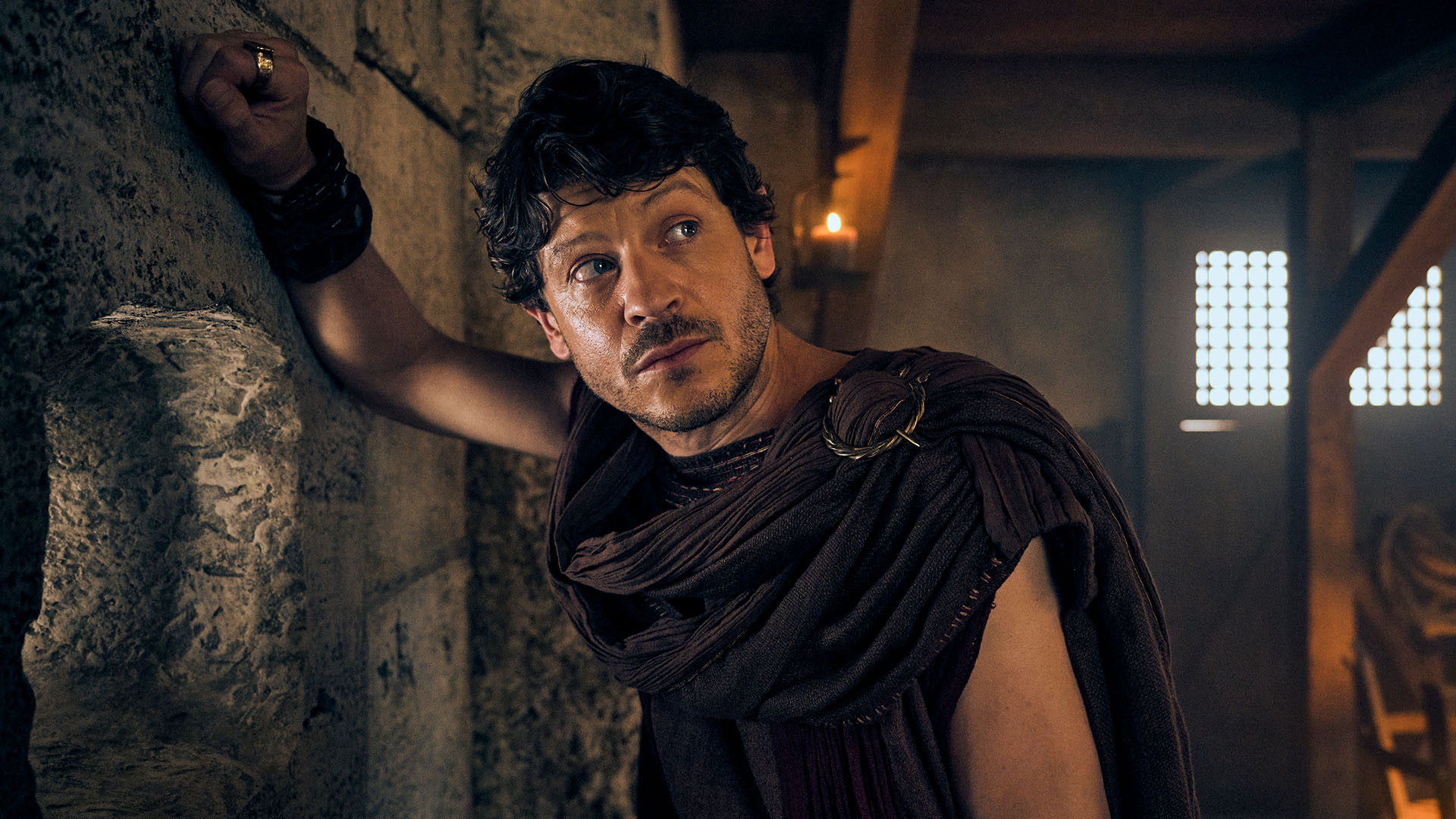
The populace here are starved of bread, we’re told, but not entertainment, as four chariot-racing factions compete for the love and coins of a bloodthirsty crowd. The first episode of Those About To Die launches right into this environment with jockish abandon, matching the pace of an over-caffeinated trailer rather than giving us a gentle awakening into its setting and themes.
Of course there’s a grand, gnarly horse race in the first episode, and showrunner Robert Rodat hones in on particular moments of spectacle rather than the rising and falling structure of such an athletic event. Whips crack; the crowd cheers and jeers for their faves like bros at a college gridiron game; one poor sod doesn’t leave the track quickly enough after being thrown from his chariot, and winds up smeared into gristle by the peloton’s next lap.
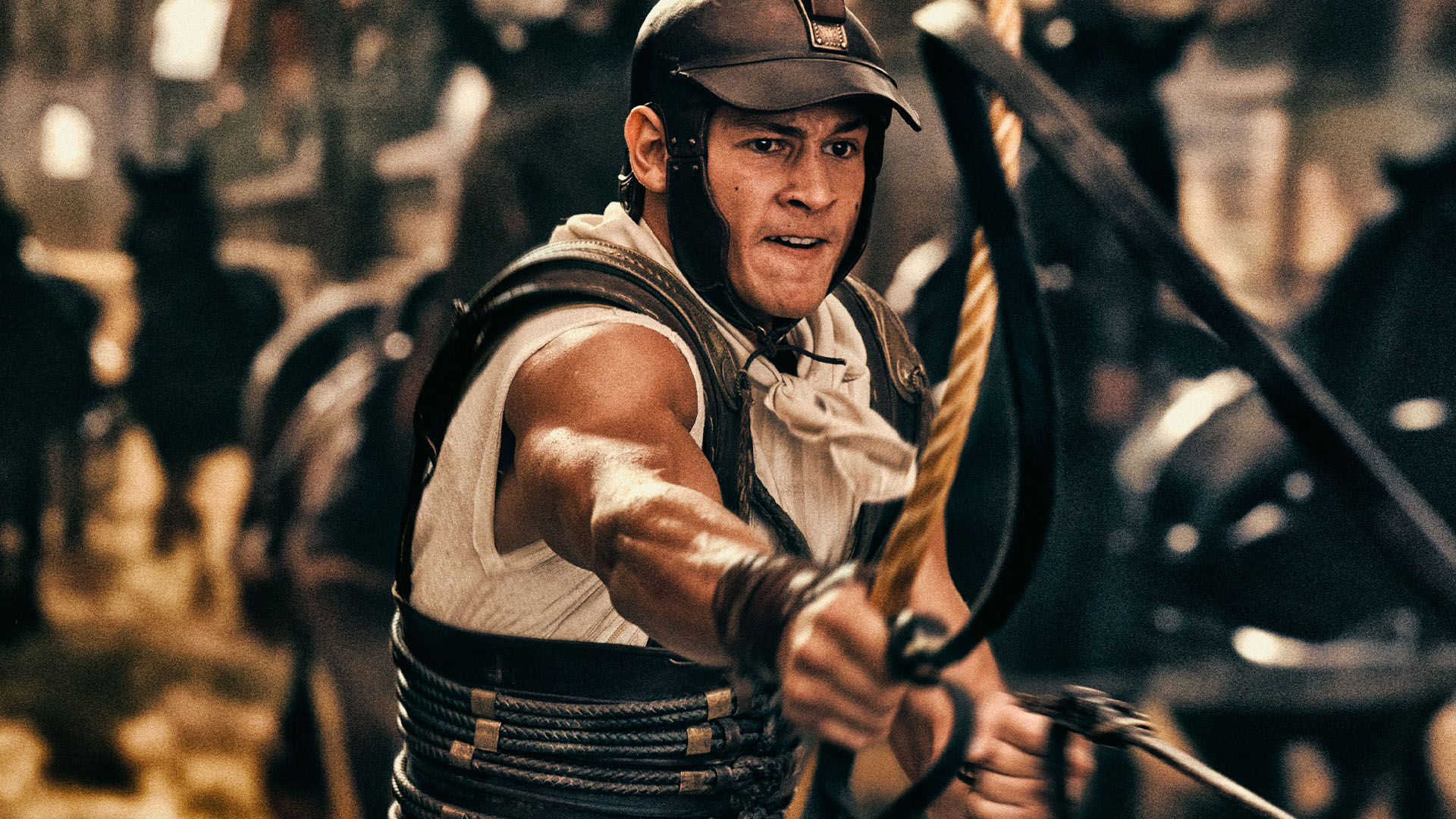
Rodat, the Academy Award-winning screenwriter behind Saving Private Ryan, is adapting a Daniel P. Mannix book of the same name, and while Mannix’s novel is credited with inspiring the respected 2000 film Gladiator, it’s also, undeniably, very much written in 1958; at the height of the mid-century swords-and-sandals craze. The streaming landscape has been missing a bit of this monocultural, mythic sensibility, and Those About To Die has the balls to attempt a renaissance. You’ve watched swords-and-sandals stuff before, the production seems to smirk at us: let’s cut to the bits you’re here to see, shall we?
Our heroes and villains consist of a trio of Spanish horse trainers; a vengeful mother trying to buy her kids out of slavery; her son, an up-and-coming gladiator set on burning the whole system down; and Hopkins, his pale eyes flashing with disapproval at failsons Domition (Jojo Macari) and Titus (Tom Hughes). Dom’s a slimy weasel of a politician, scheming with our boy Tenax to corrupt the racing world, while Titus is a soldier who can’t get dad to approve of his Judean queen GF. By episode two, one of them has been picked to inherit Vespasian’s golden wreath, but you can be sure the other won’t take the decision lying down.
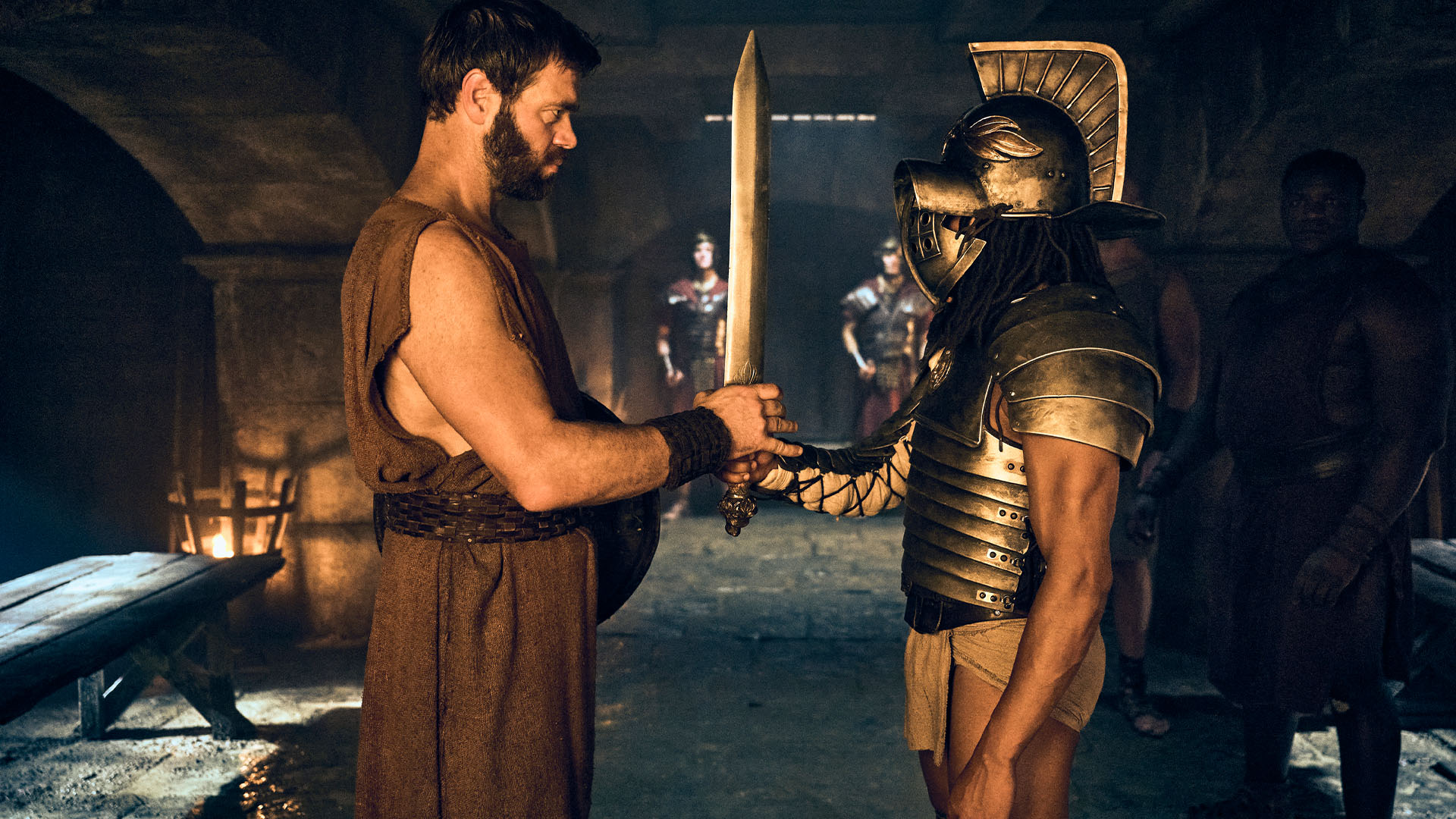
This isn’t a show where the characters’ arcane politicking and closely-held inner trauma make up much of the drama. You’re more likely to hear them declaring to a roomful of extras “a river of blood for them, an ocean of money for us!”, or “when the emperor says we race, we race!”, rather than quietly sharing details of their backstory. Those About To Die has a deliciously base focus, almost sportsmanlike in its storytelling—foregoing subtle, lived-in authenticity for brash moments of action, and big archetypal characters you already know you love or hate.
Out of the series’ expansive cast, slave-turned-fighter Kwame (Moe Hashim) and Rheon’s slithering manipulator offer the most exciting narrative arcs, with Hopkins lending the proceedings a sense of authority from above. But while you’re getting to know each of these hopefuls, Rodat and Emmerich offer more than enough gore and spectacle to grease your chariot wheels.
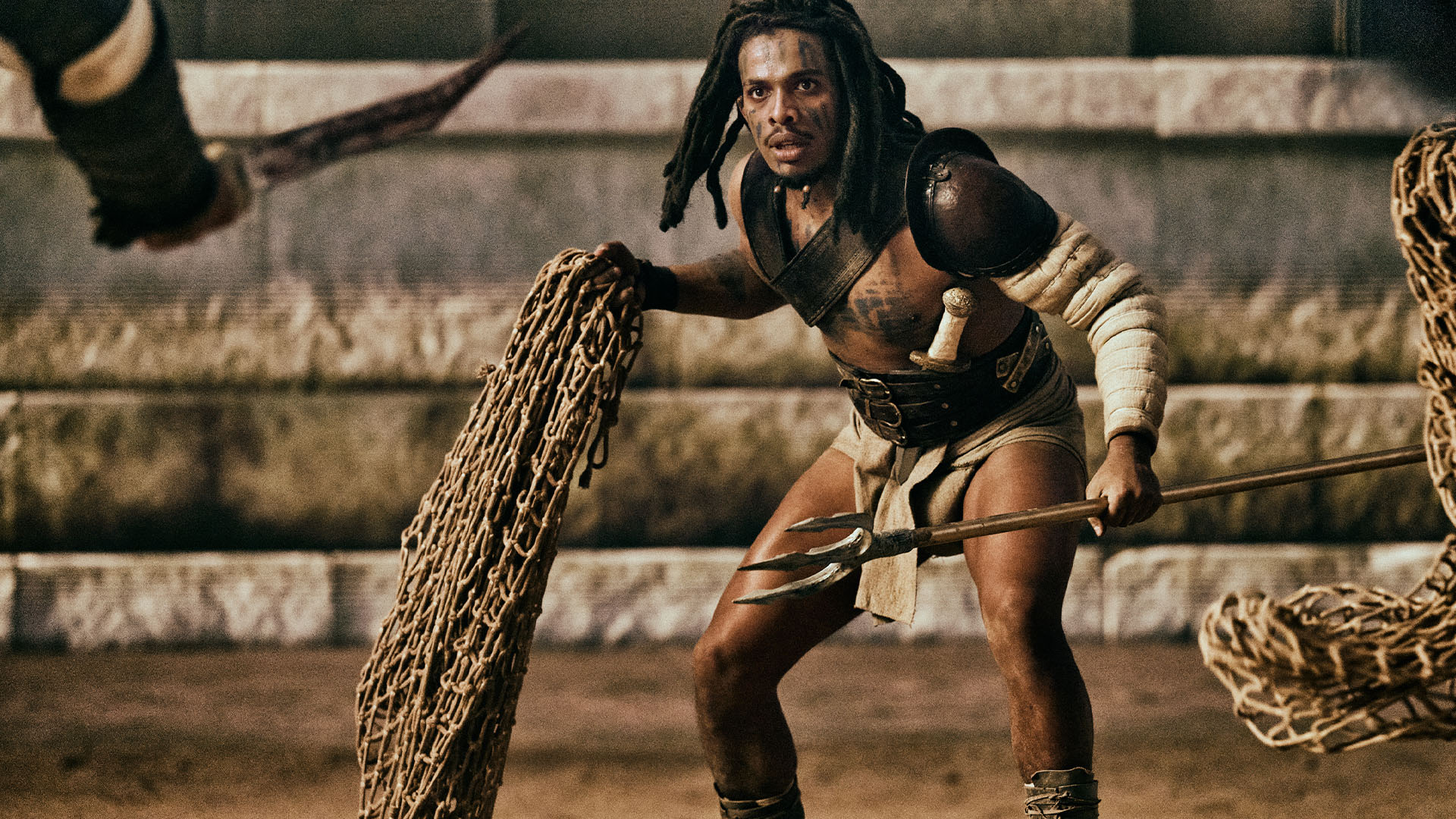
There are crucifixions, man-eating lions, witches who help out with insider betting tips, peasants rioting for bread and stomping legionary heads… and also some hearty ‘sexposition’. Popularised during Game of Thrones’ sauciest scenes, this term refers to the use of scantily-clad extras having at it while important plot details are shared, to help, um, lubricate some of the drier dialogue exchanges.
There’s also a guy who’s some kind of horse-poop sommelier, sniffing the droppings of a chariot racer’s fave steed to determine whether it’s in winning shape.
True history nerds might turn up their noses at this splashy series, preferring to read a hefty tome on Vespasian’s real imperial career rather than witnessing the imagined lives of the commoners and hustlers at his feet. But for the rest of us, Those About To Die capitalises on some of our most seductive assumptions about the bad old days of Ancient Rome: that life was cheap, that the glory of victory in a gladiator battle or a chariot race was perhaps worth dying for. Emperor Hopkins declares a reign of fun, of sheer spectacle, above all else, and we have no choice but to hail.



















